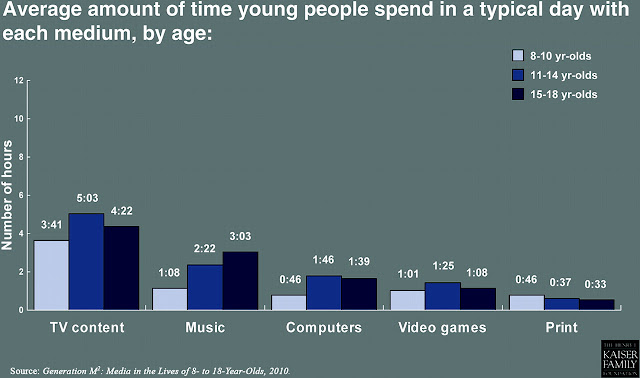JOURNAL 7
Can you think of some examples of media imperialism (local, your own country, overseas)?
Definition of media imperialism
"Media
imperialism is a theory
based upon an over-concentration of mass media from larger
nations as a significant variable in negatively affecting smaller nations, in
which the national identity of smaller nations is lessened or lost due to media homogeneity
inherent in mass media from the
larger countries."
https://en.wikipedia.org/wiki/Media_imperialism
One of the examples
I can think of is media imperialism occurs with our Malaysia’s newspaper. Our newspaper
are strictly controlled by the government, hence all the news are all being
manipulated and not all of them are true. My parents used to see newspaper
before one of the 1MDB cases was discovered, but after 1MDB was discovered, most
of the newspapers were more strictly controlled by the government by not simply
slip out the news. (*In my opinion) We
can see that they were using many excuses trying to cover back their corruption,
trying to manipulate the truth of what the nation heard or seen from anybody or
anyplace. So my parents sense that it’s not right for the government to do
that, just because of power in politic blind their purity and honesty in one’s
heart, they decided to not trust the newspaper too much especially the local
news about our politics. Most of our nation had actually lost the trust in
Malaysia’s newspaper as they know all were lies.
“The media of Malaysia
include television, radio, newspapers, and web-based media such as bloggers.
Many media outlets are either owned directly by the government of Malaysia
(e.g. Bernama) or owned by component parties of the Barisan Nasional coalition
government (e.g. the Media Prima group, which is owned by the United Malays
National Organisation). Two opposition parties, PAS and PKR, publish their own
newspapers, respectively Harakah and Suara Keadilan, which are openly sold
alongside regular publications.
Since conventional media
is so tightly controlled by the government, Malaysia has a lively alternative
media scene, characterised by such news portals as Malaysiakini and The
Malaysian Insider which take advantage of the government's pledge not to censor
the Internet despite its stranglehold on most mass media outlets.”
I think that we
do not have the freedom of the press especially when come to political issues. We
do not have the freedom to know the truth behind all the politics, whenever
come to politics the governers always kind of ‘twist the plot’ to let us
believe they are not wrong but in deep heart, every nation know their wrong
doing but we cannot do anything instead we only keep quiet. The governers also
tightly restrict our freedom of speech and media. Therefore, we Malaysian’s
actually were used to keep quiet in
change of our freedom, we can only watch and hope for light.
“Malaysia was ranked 141
out of 178 countries in the Press Freedom Index by Reporters Without Borders in
2010 and 122 out of 179 countries in 2012.
Owning to political
sensitivities, newspapers from Singapore cannot be sold in Malaysia, hence The
Straits Times and other Singapore titles are not sold in Malaysia, while the
New Straits Times and other Malaysian titles are not sold in Singapore. The ban
was imposed before the 1 May 1969 general election in Malaysia.”
There is also
this example of media imperialism in our country: The story that is dividing’s Malaysia’s media. Steven Gan, editor-in-chief of
the Malaysiakini website, speaks about the 1MDB scandal, and the growing threat
to online freedom press. The news of
1MDB corruption scandal was now only followed by small number amount of online
outlets, such as Malaysiakini is still following the news investigation closely. But the government is keen to
keep this story out of the public eye. The Listening Post spoke to Malaysiakini
editor Steven Gan about the 1MDB scandal, the limitations of Malaysia's
mainstream media and the growing threat to online freedom of the press.
In the interview, Steve Gan spoke about his opinion towards
Malaysia’s media and also the case of 1MDB, one of their conversation:
The
Listening Post: There seems to be a clear divide between mainstream media and
online outlets in Malaysia. Could you explain this divide to us and what it
means for news consumers?
Gan: In
Malaysia, for a number of decades, the mainstream media has been either
directly or indirectly controlled by the government, and some of them are
actually owned by the ruling party.
So
it is a way for them to put all the mainstream media on a tight leash, not just
through ownership but also through the licensing regime. If you want to launch
a newspaper, you need to get a licence from the government and through that,
the government is able to apply quite a bit of leverage over you because they
can take away your licence.
They
could make you illegal, meaning that you have a closed shop. Until recently,
the licensing regime was so draconian that the government's decision to suspend
a newspaper could not be challenged in court. So through that, the government
can actually keep a lid on a lot of the traditional media. Online media
is a bit different because we have a history of no censorship.
That's
partly because of a fight in the 1990s when former Prime Minister Mahathir came
up with the idea that Malaysia could be the Asian Silicon Valley. He promised
not to censor the internet, so we have that long tradition where there's no
censorship of the internet. But of course you know, lately you see the
government trying to impose censorship on the internet media.
The video link:
https://www.youtube.com/watch?v=B8M8uSJdoMY&t=3s
The story that
is dividing’s Malaysia’s media:
Video link:




Comments
Post a Comment